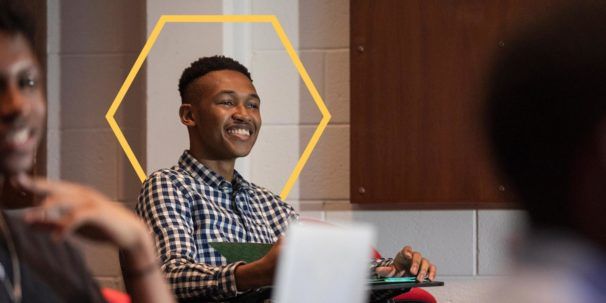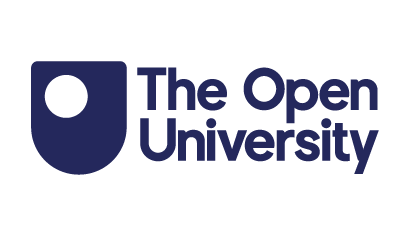Explore: Education in Nigeria
In this article, you will learn the history of education in Nigeria, the current education system and the policy that governs the educational system in Nigeria.

According to UNESCO, the adult literacy rate is estimated to be 62% among Nigerians aged above 15 years. This shows that the average Nigerian possesses the ability to read and write, even if that may not be fluently.
The education system in Nigeria influences the literacy rate of its citizenry. Education in Nigeria grew over the years after the Methodist missionaries introduced formal education in Nigeria.
In this article, you will learn the history of education in Nigeria, the current education system structure and the policy that governs the educational system in Nigeria.
History of Nigerian Education System
Methodist missionaries started the first primary school in Nigeria in 1843. Thankfully, they introduced formal education in Nigeria. A few years later, in 1854, some Christian missionaries started CMS grammar school in Lagos which became the first secondary school in Nigeria.
Once Lord Lugard had amalgamated the northern and southern parts of Nigeria in 1914, there was a growing demand for schools in Nigeria.
The rapid growth in education led to the establishment of the University of Ibadan in 1948, and this was the first Nigerian university.
Individuals and groups in the private sector took the responsibility to establish private schools in addition to the public schools. The educational sector in Nigeria has both government and private schools across all levels of education.
Nigerian Education Statistics And Facts
According to statistics, 7.2 million children enrolled in early childhood education programs in Nigeria. In contrast, 22.2 million children aged above 6 years enrolled in a public primary school and 5.5 million children registered in a private primary school.
For secondary school enrolment, the pattern was clear. The survey revealed that the enrolment rate in junior secondary school was 54.4%, while those for senior secondary school was 68.6%.
A 2017 university census revealed that the total number of undergraduate students was 1.7 million, while the number of postgraduate students (students carrying out either a master’s or doctorate degree) was 234,000.
What Is The Educational Policy In Nigeria?
The national policy on education is legislative guidelines from the federal government that set standards, procedures and implementation plans that ensure educational development and delivery of qualitative education in Nigeria.
The first national policy on education was published in 1977 but has been revised several times by successive stakeholders in the federal ministry of education because of growing changes in education delivery.
The 2014 edition of the national policy on education stipulates that the government handles formal basic education, which is compulsory and free to all. The basic education covers:
- 1 year pre-primary education
- 6 years of primary education
- 3 years of junior secondary education
Also, new objectives and curricula were highlighted in the national policy on education to guide and regulate educational activities across all levels of education, both in public and private schools.
How Education In Nigeria Works
The government and private stakeholders such as non-governmental organisations and private individuals manage educational facilities as stipulated by the national policy on education. The federal ministry of education regulates both public and private educational institutions.
Nigeria has 3 government levels: Federal, State and Local. The federal government and statement government manage public tertiary and secondary level institutions, while the local government oversees public pre-primary and primary level institutions.
The Nigerian educational system was formerly structured using the 6-3-3-4 formula, which means 1 year pre-primary, 6 years primary, 3 years junior secondary, 3 years senior secondary and 4 years tertiary education. Tertiary education covers universities, polytechnics and educational colleges.
However, in 2008, the federal government introduced the 9-year basic education curriculum to achieve the goals of the universal basic education program.
Thus, the Nigerian educational structure became 9-3-4, which means 9 years basic education, 3 years senior secondary school education and 4 years tertiary education.
The structure of the 9-year basic education curriculum is:
- Lower basic education curriculum- Primary 1-3
- Middle basic education curriculum- Primary 4-6
- Upper basic education curriculum- Junior secondary 1-3
The 9-year basic education program, together with the recent curriculum changes, was implemented in 2014 across various schools in Nigeria.


Educational structure in Nigeria
The Nigerian formal educational structure is divided into:
- Basic education
- Senior secondary school education
- Tertiary education
Basic Education
The 2014 national policy on education stipulated that basic education covers early child care and development education (creches, daycare), pre-primary education, primary and junior secondary education.
Basic education provides formal education training to children aged between 0-15 years.
The age group distribution for sub-level of basic education are:
- Early child care and development education – 0- 4 years
- Pre-primary education (1 year duration) – 5 year olds
- Primary education – 6-12 years
- Junior secondary education – 12- 15 years
English is the official language of instruction at the basic education level, but they may adopt indigenous languages depending on the location. For instance, educators in a particular geopolitical zone of Nigeria may choose to teach primary school students in their local language, such as Hausa, Igbo or Yoruba.
Schools use the national policy on education guidelines to decide on the curriculum and subjects to teach.
They give a student that successfully completes primary education a primary school leaving certificate to progress into junior secondary school level.
Also, a basic education certificate is awarded to successful students that pass the entrance exams into senior secondary school education.
Senior Secondary School Education
The current curriculum prepares students to have vocational skills apart from their formal education training. Vocational training empowers senior secondary school students to gain skills such as hair styling, crafting, and fashion designing.
The formal education curriculum offers core subjects such as mathematics, English, civic studies and entrepreneurship across the different fields of studies which include: science, arts, technology and business.
For senior secondary school students to progress into the tertiary level of education, the student must pass the senior school certificate examination prepared by the West African examination council (WAEC) and national examination council (NECO).
The WAEC exams are usually taken every year in May, and they only expect senior secondary school students in the last class to sit for this exam.
Successful students are given a senior school leaving certificate upon completion of senior secondary education.
For students to gain admission into a Nigerian university, the student must pass both the West African examination council (WAEC) or national examination council (NECO) and the unified tertiary matriculation exam (UTME).
The joint admissions and matriculations board prepares the UTME as a uniform admission test for all eligible senior secondary students, regardless of location.
However, in 2016, because of some irregularities in the conduct of the UTME, some universities now conduct their internal exams to screen students further before admission.
Tertiary Education
Nigerian tertiary education covers both universities, polytechnics and colleges of education.
The National University Commission is the governing body that regulates the activities of accredited universities in Nigeria.
The university curriculum is structured to prepare university graduates to contribute towards national development and to develop entrepreneurs to create employment opportunities.
Entrepreneurs will boost economic growth by creating more jobs and reducing unemployment as well as crime rates among unemployed youths.
Colleges of education are training centres for preparing young students interested in the teaching profession. These colleges prepare their students to become competent teachers in the society.
Polytechnics provides specialised technical training and skill acquisition for students so they can contribute to the industrial and economic developments in Nigeria.
Final thoughts
Education in Nigeria has developed over the years after the initial introduction by Christian missionaries because it is one of the major sectors in Nigeria that contributes towards nation-building and economic growth.
The federal ministry of education regulates education in Nigeria, and the national policy of education sets standards and guidelines that educational institutions follow to ensure students are prepared for national building and development.
The current educational system in Nigeria follows a 9 years basic education, 3 years senior secondary education and 4 years tertiary education.
















